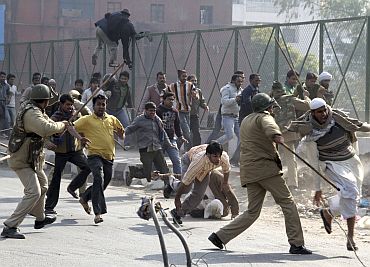
For veterans of mob violence, the events in the Jungpura-Nizamuddin area of South Delhi through Wednesday and Thursday barely merited notice. To quote Lance Klusener in another context, "nobody (has) died" at least not at the time of writing.
Some 15-20 people were injured in protests after the demolition of a mosque. The mosque was on a plot claimed by the DDA (Delhi Development Authority). The backstory is so common it's hardly worth repeating.
There are reportedly over 350 assorted religious structures illegally located on DDA land.
The Delhi Wakf Board claims the mosque in question was actually on Wakf land. So, there may be another dispute in store about ownership of the land itself.
...
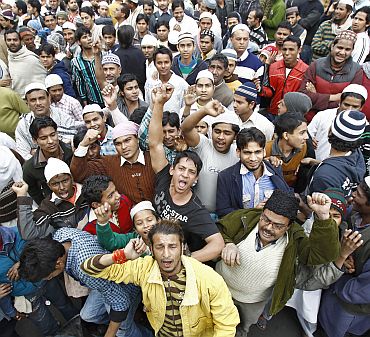
The mosque had been under threat since at least 2006, which was when I moved into a house located about 500 metres from it.
The Jungpura RWA (Residents Welfare Association) had then moved the Delhi High Court asking for clearance of that plot. There was also a JJ (jhuggi-jhopdi) colony (as Delhi slums are officially labelled) there.
In 2008, the DDA promised the Delhi HC it would demolish the mosque. It cleared the slum. But it didn't touch the mosque. On January 14, the DDA was due to answer a contempt notice issued by that Delhi HC that asked for a compliance report on demolition.
The bulldozers swung into action at around dawn on January 12 in a heavily-policed operation.
By that afternoon, there were mobs out in force in Nizamuddin East and West.
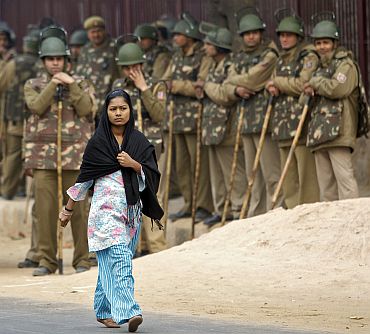
Mathura Road (aka National Highway 2) was blocked by damaged vehicles along a 3-km stretch.
The Nizamuddin Railway Station was cut off and the area was under siege.
The police used teargas and did a couple of lathi charges; the Rapid Action Force was deployed; the mob armed itself with brickbats and set fire to random things.
Note, however, that things were the targets of arson, not people, unlike in a "proper" riot.
The number of uniforms may have seemed like overkill. But the police were restrained.
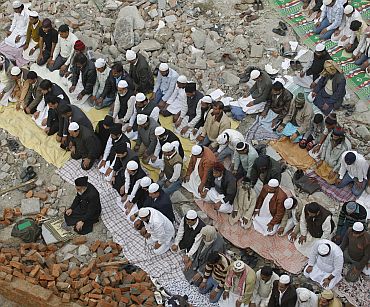
They tried to limit the trouble to within a relatively small area in a desi version of the London Kettle.
They didn't get into confrontations; they ignored contemptuous speculation about the sex lives of their mothers and sisters.
As in London, much of the mob consisted of kids who are not yet of voting age. For old-timers, who remember 1984, 1992-93, etc., both the police presence and the restraint were welcome.
It's a delicate task to manage a crowd and keep it from turning violent. But if there aren't an adequate number of policemen present when a mob starts gathering steam, violence is guaranteed.
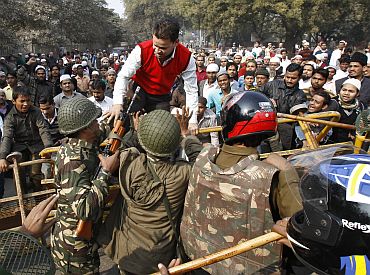
Sporadic incidents continued through Thursday even as Lori was celebrated shaan se by the biradari (community). Politicians got into the act. Local Muslims were allowed to offer prayers at the demolition site on Thursday.
The prudent have ensured motor insurance premiums are up to date. Some neighbours intended to get away for an early weekend. Foreigners working for various international organisations have been asked to stay away.
So far, there have been just a few items in the print media, though there have been a lot of waves on Twitter.
The absence of TV coverage is notable, given the number of media persons resident in the affected areas. It's due to lack of footage -- the vans couldn't get in. By India's standards, this has been a storm in a teacup. So far. I am not religious, but let's pray it stays that way.